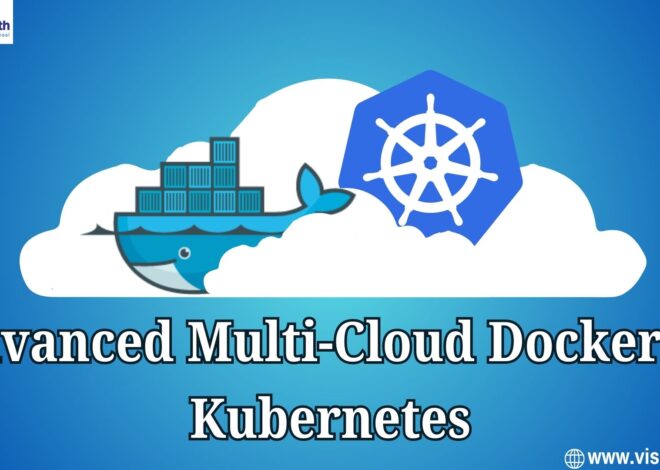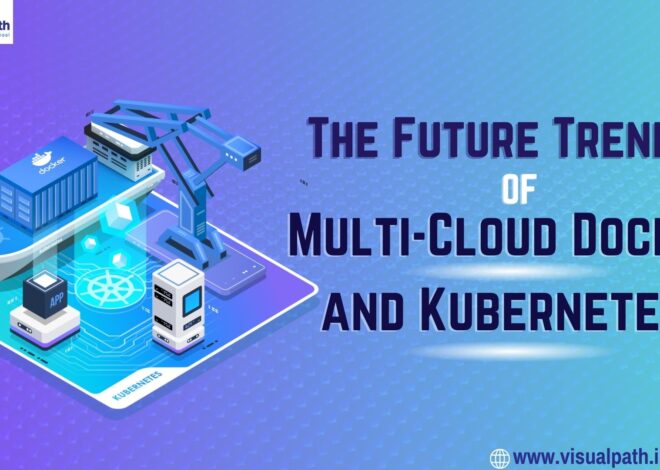
What are the Benefits of Docker and Kubernetes using multi-cloud?
Mastering Docker and Kubernetes using a multi-cloud approach involves leveraging containerization and orchestration technologies to deploy, manage, and scale applications seamlessly across multiple cloud providers. This strategy enhances portability, resilience, and cost optimization by avoiding vendor lock-in and ensuring high availability. It enables efficient resource utilization and robust security, driving innovation and operational agility in diverse cloud environments.
Understanding Docker and Kubernetes
Docker is a platform that uses containerization to enable developers to package applications and their dependencies into a single, portable container. This container can run on any system that has Docker installed, ensuring consistency across multiple environments. Docker’s lightweight nature allows for rapid deployment and scaling, making it an essential tool for modern DevOps practices.
Kubernetes, is an open-source framework for container orchestration that makes the deployment, scaling, and administration of containerized apps automatic. Kubernetes provides a robust framework for running distributed systems resiliently, managing the lifecycle of containers, and ensuring efficient resource utilization.
The Multi-Cloud Strategy
A multi-cloud strategy involves leveraging multiple cloud service providers (CSPs) to host and manage applications. This approach allows organizations to avoid vendor lock-in, optimize costs, and enhance redundancy. By distributing workloads across different cloud environments, businesses can achieve higher availability and fault tolerance. Kubernetes Multi-Cloud Training
Docker and Kubernetes Advantages in a Multi-Cloud Environment
1. Enhanced Portability and Flexibility
Docker containers offer a highly portable solution by encapsulating apps together with their dependencies. This portability is further enhanced by Kubernetes, which abstracts the underlying infrastructure, allowing containers to run seamlessly across different cloud platforms. By using Docker and Kubernetes, organizations can deploy applications on any cloud provider without significant reconfiguration, ensuring flexibility and adaptability to changing business needs.
2. Improved Resilience and High Availability
Multi-cloud environments inherently offer improved resilience by mitigating the risks associated with a single point of failure. Kubernetes takes this a step further by providing automated failover and self-healing capabilities. In case of a failure in one cloud provider, Kubernetes can automatically redistribute workloads to another provider, ensuring uninterrupted service. This high availability is crucial for mission-critical applications that require minimal downtime.
3. Optimized Cost Management
Different cloud providers offer varying pricing models and performance characteristics. A multi-cloud strategy allows organizations to take advantage of the best pricing and performance combinations available. Docker and Kubernetes facilitate this by enabling seamless movement of workloads between clouds. Organizations can dynamically allocate resources based on cost and performance considerations, optimizing their cloud expenditure.
4. Scalability and Performance Efficiency
Kubernetes excels at managing the scaling of containerized applications. By using a multi-cloud setup, businesses can leverage the combined computational power of multiple providers. Kubernetes can scale applications horizontally across clouds, ensuring that resources are used efficiently. This scalability is particularly beneficial during peak usage periods, allowing organizations to meet demand without over-provisioning. Multi-Cloud Training
5. Enhanced Security and Compliance
A multi-cloud approach can enhance security by distributing data and applications across multiple environments, reducing the risk of a complete breach. Kubernetes provides robust security features, including role-based access control (RBAC), network policies, and secrets management. By combining these with the security features offered by various cloud providers, organizations can build a more secure infrastructure. Additionally, a multi-cloud strategy helps in meeting regulatory compliance requirements by ensuring data is stored and processed in specific geographic locations.
6. Innovation and Speed to Market
Docker and Kubernetes streamline the development and deployment processes, enabling faster iteration and innovation. A multi-cloud strategy complements this by providing access to a broader range of tools and services offered by different providers. Developers can leverage the unique capabilities of each cloud platform to build and deploy innovative solutions rapidly, reducing the time to market.
Implementing Docker and Kubernetes in a Multi-Cloud Environment
To fully realize the Docker and Kubernetes Advantages in a Multi-Cloud Environment, organizations need to follow a strategic approach:
- Assessment and Planning: Evaluate the existing infrastructure, identify workloads suitable for containerization, and define a multi-cloud strategy aligned with business goals.
- Containerization: Use Docker to containerize applications, ensuring they are portable and consistent across environments.
- Orchestration Setup: Implement Kubernetes for container orchestration, setting up clusters that span multiple cloud providers. Master Docker & Kubernetes Training
- Networking and Connectivity: Establish secure and efficient networking between different cloud environments, ensuring seamless communication between containers.
- Monitoring and Management: Use monitoring tools to gain visibility into the multi-cloud infrastructure, ensuring optimal performance and quick identification of issues.
- Continuous Integration and Delivery (CI/CD): Implement CI/CD pipelines to automate the deployment process, ensuring rapid and reliable delivery of updates across multiple clouds.
Conclusion
Docker and Kubernetes have emerged as powerful tools in the realm of cloud computing, offering unparalleled benefits in terms of portability, scalability, and management of containerized applications. When combined with a multi-cloudstrategy, these technologies can transform how organizations deploy and manage their applications, driving efficiency, resilience, and innovation. By leveraging the strengths of multiple cloud providers, businesses can optimize their resources, reduce costs, and ensure high availability, positioning themselves for success in a competitive digital landscape.
The Best Software Online Training Institute in Ameerpet, Hyderabad. Avail complete Docker & Kubernetes using Multi-Cloud Training by simply enrolling in our institute, Hyderabad. You will get the best course at an affordable cost.
Attend Free Demo
Call on – +91-9989971070
WhatsApp: https://www.whatsapp.com/catalog/917032290546/
Visit: https://www.visualpath.in/kubernetes-multi-cloud-online-training.html



